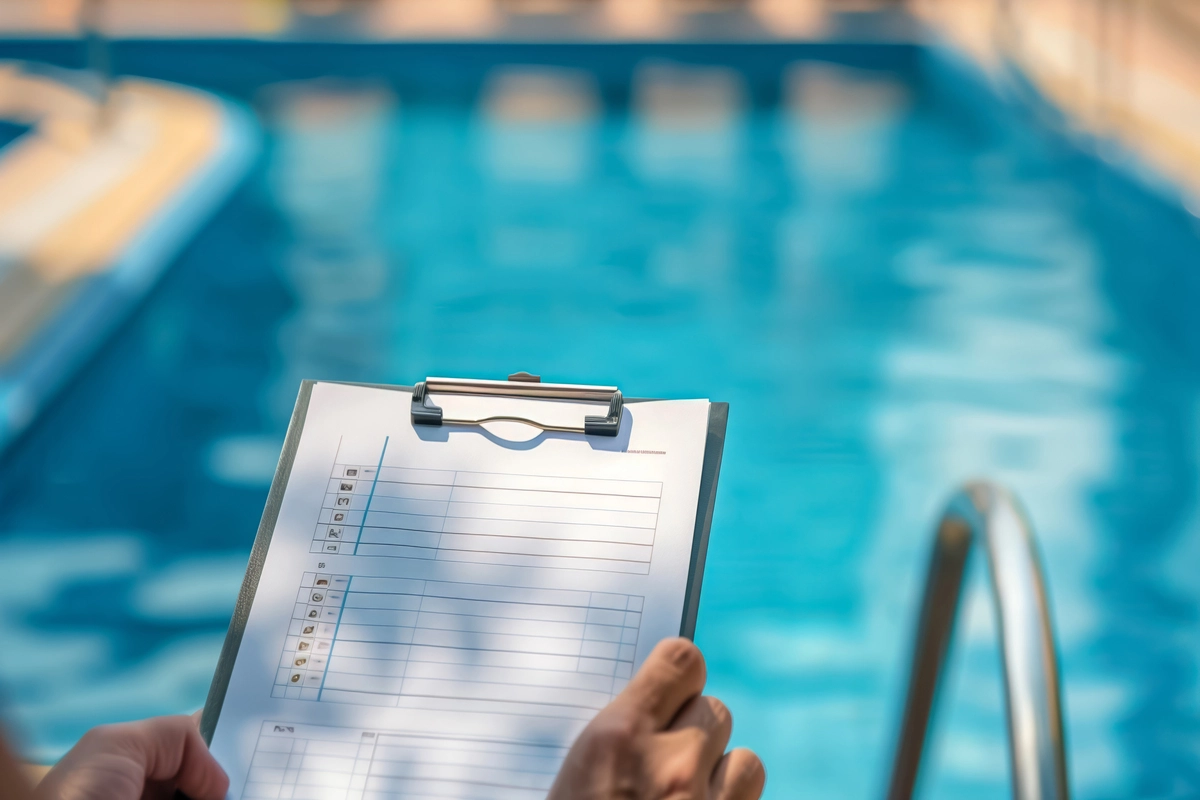DIY vs. Professional Pool Inspection: Which One Do You Need
For numerous homeowners, owning a pool is a cherished dream that provides refreshment and quality moments with family and friends. However, a swimming pool needs scheduled maintenance checks and inspections to function properly while staying safe.
So the big question is: DIY vs. professional pool inspection, which one is right for you?
This blog will explain the benefits, allowing you to make an informed selection.

Why Pool Inspections Matter
Pool inspections are essential when buying a home with swimming pools before summer begins and during regular maintenance periods.
A pool can have an okay appearance on the surface, but hidden issues may lurk underneath. Leaking components, faulty electrical systems, or defective pumps are all too common pool issues.
A complete inspection is an absolute necessity because safety demands it.
A pool inspection includes checking various components as part of the evaluation process.
It covers all elements, from water chemistry to pool structure inspection and safety system assessment.
Here’s a basic pool inspection checklist you can use:
- Inspecting cracks in pool walls and decking components.
- How well pumps, filters, and heaters function.
- Water clarity and chemical balance.
- Correct grounding and bonding of electrical equipment.
- Safety covers, fences, and gates.
- The status of ladders, handrails, and tiles.
- Leak detection and drainage systems.
What approach should people use to examine these items? That’s where the DIY vs. professional pool inspection debate begins.
The DIY Pool Inspection Approach
Some homeowners feel tempted to inspect their pools on their own because they have good troubleshooting skills or simply want to understand their home systems better. Conducting your own pool inspection allows you to save expenses immediately.
The basic steps for a self-conducted pool inspection would involve:
- Walk around the pool to check the visibility of cracks, missing tiles, and any damage.
- Check the operational status of pumps and filters by activating them during the inspection.
- Home-based water quality tests include measurements of pH, chlorine, and alkalinity levels.
- Safety gear evaluation involves inspecting pools to ensure fences and gates are properly secured.
Pros Of DIY Pool Inspections
- Cost-saving: No inspection fee.
- Convenient: Do it on your schedule.
- Good for frequent checks: Useful for weekly or monthly maintenance.
Cons Of DIY Pool Inspections
- Insufficient expertise may cause you to overlook certain problems.
- Insurance companies will probably not accept your unprofessional findings because they lack certification.
- DIYers generally lack the specialized equipment to detect subsurface leaks and electrical grounding checks.
Why Go With A Professional Pool Inspection
A certified pool inspector possesses training that allows them to detect problems that would escape typical homeowners’ attention. They follow a detailed pool inspection checklist, often supported by advanced tools like pressure testers, thermal cameras, or sonar leak detectors.
Pros Of Professional Pool Inspections
- Inspectors hold certifications and have experience and in-depth knowledge to do their job.
- Unbiased report: This is especially important during home purchases or sales.
- Safety professionals confirm that safety equipment complies with regional building regulations.
- The identification of all critical issues brings peace of mind to the inspector.
Professional inspections decrease potential pool injuries and maintenance costs and increase the life span of your pools.
Cons of Professional Pool Inspections
- The inspection services cost between $200 and $500.
- Making an appointment is one of the prerequisites.
DIY vs. Professional Pool Inspection: Which One Should You Choose
The following section evaluates the two methods with consideration of your requirements.
Choose DIY If
- The regular maintenance of your pool motivates you to identify minor issues before they become major problems.
- You can easily manage water and equipment without outside help.
- You want to run a quick check after a storm or between seasons.
Choose Professional Inspections If
- You are buying or selling a house with a pool.
- Your pool has remained unchecked by professional inspectors for longer than twelve months.
- The pool shows significant problems, including leakages, electrical failures, and structural issues.
- You need documentary evidence of your pool’s condition to submit insurance claims or warranty requests.
In short, DIY vs. professional pool inspection isn’t about one being better than the other; it’s about using the right approach for the situation.
Doing minor car jobs on your own, such as oil changes, typically works out fine for regular maintenance needs. But you should call the mechanic whenever your engine produces abnormal noises.
Blending Both Approaches
The best approach would be to use a mix of both approaches for optimal results.
- You should perform DIY tests for standard pool upkeep.
- Conduct professional pool inspections yearly and before buying a home.
Your combined approach lets you take advantage of both approaches economically and professionally. It’s like having the best of both worlds.
Conclusion
Your swimming pool is a valuable asset and an important part of your home. Regular inspections are needed for all assets to ensure their peak performance. Your goal should be to maintain pool security and cleanliness so it always remains available for use, regardless of which inspection method you choose.
So, think about what’s at stake next time you’re debating DIY vs. professional pool inspection. Investing in pool evaluation will preserve your future financial security and protect you from dangerous pool problems.
Inspect360 devotes itself to protecting its clients’ peace of mind by inspecting pools. Our certified inspectors follow a thorough pool inspection checklist and use the latest tools to find hidden issues before they become major problems.
We also aid customers who acquire new homes and those who need pool maintenance services.
Contact Inspect360 right away to receive the best pool inspection services with complete peace of mind.
